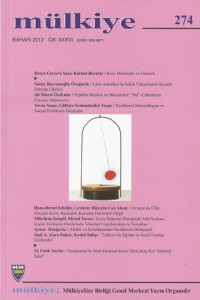Popülist Söylem ve Bileşenleri: “Sol”-Liberalizm Üzerine Düşünceler / Populist Discourse and its Constituents: Notes on Left-liberalism
Öz
This article argues that the left-liberalism as being one of the elements altogether constituting the specific amalgamation of populist discourse in modem times retains its relevance in the current period not only as a source of legitimisation of violence pursued by neo-liberal governments under the banner of democracy but also as a potential source capable of replacing participatory democracy with a formalistic one that is totally in conformity with the premises of neo-liberalism. Against this background the study critically evaluates the role of the post-structuralist approaches in the “structuration”/construction of the populist agent that is represented in the guise of the populist leader. Secondly, the article focuses to the Marxist theories of discourse which enhanced our understanding by way of materially connecting the ideological organisation of power with the social structuring of power, while avoiding both post-structuralist and constructivist deviations.
Popülist söylemin günümüz versiyonlarının temel unsurlarından birisi olarak “sol”- liberalizm, güncelliğini sadece neo-liberal hükümetlerin demokrasi adı altında tatbik ettiği şiddeti meşrulaştırmak yoluyla değil, aynı zamanda katılımcı demokrasiyi neo- liberalizmin öncülleriyle bütünüyle uyuşan biçimsel bir demokrasiye tahvil etmek suretiyle de sürdürmektedir. Anılan çerçevede bu çalışma, post-yapısalcı yaklaşımların popülist liderin şahsında temsilini bulan popülist öznenin yapılandırılmasmda/inşasmda oynadığı rolü eleştirel olarak değerlendirecektir. Çalışma ikinci olarak, post-yapısalcı ve inşacı açılımlardan uzak durarak, -iktidarın ideolojik örgütlenmesiyle toplumsal yapılanması arasındaki irtibatı tesis etmek suretiyle bilgi birikimine katkı koyan- Marksist söylem teorilerine odaklanacaktır.
Ayrıntılar
| Birincil Dil | Türkçe |
|---|---|
| Bölüm | Makale / Articles |
| Yazarlar | |
| Yayımlanma Tarihi | 13 Ocak 2015 |
| Yayımlandığı Sayı | Yıl 2012 Cilt: 36 Sayı: 1-274 |

